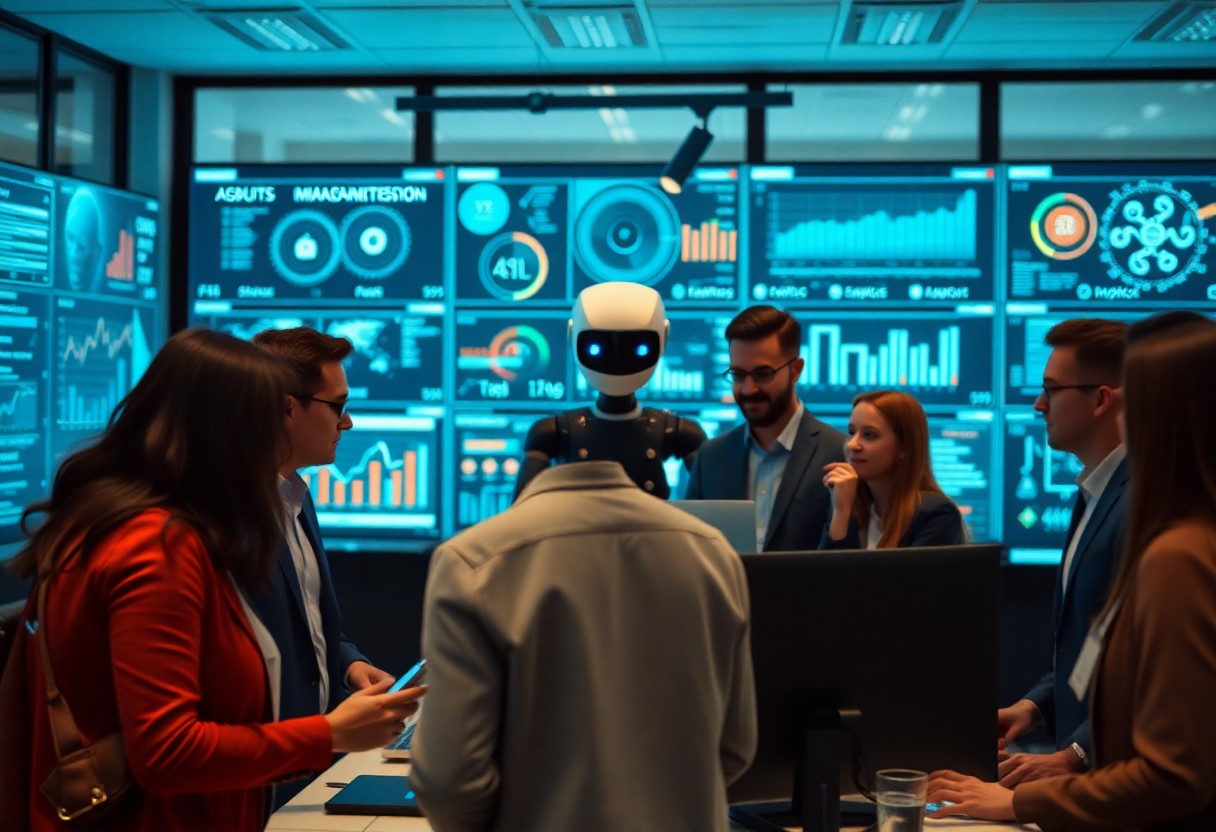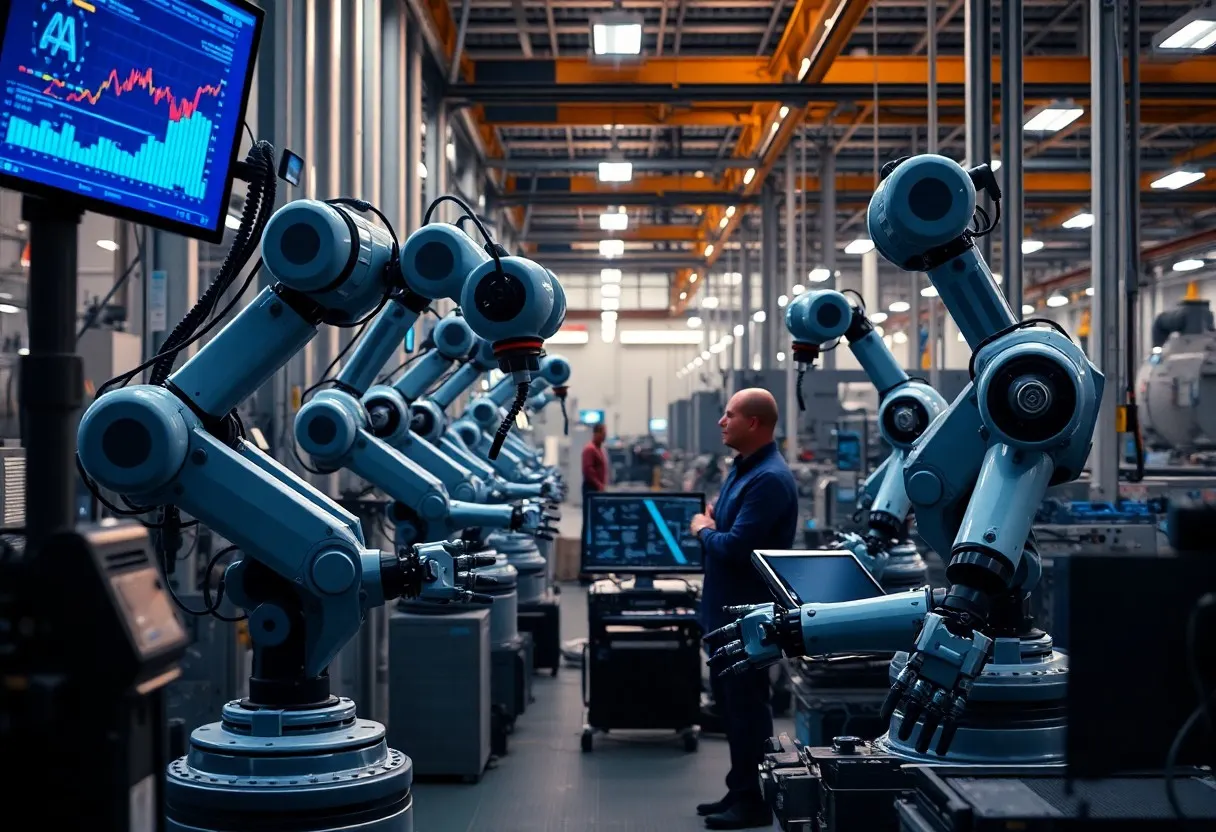Sure! Here’s A List Of 10 Headlines Related To AI Trends
You might be searching for engaging blog headlines that will captivate your audience and keep them interested in the latest AI trends. In this post, I will share ten evergreen, concise, and impactful blog headlines that you can use to enhance your writing and draw in readers. These headlines are designed to resonate with your audience while providing valuable insights into the ever-evolving world of artificial intelligence. Let’s dive in and explore these headline ideas together!
The Future Of AI: What To Expect In The Next Decade
As I look ahead to the next decade, the future of AI promises to reshape our world profoundly. We can expect advancements in machine learning, augmented reality, and autonomous systems that will enhance the way we live and work. With AI becoming increasingly integral to everyday tasks, you’ll likely see more personalized experiences and improved efficiencies across various sectors. This evolution will not only optimize existing processes but also create new opportunities and industries altogether, making it an exciting time for innovation and expansion in AI technologies.
Key Innovations on the Horizon
I believe we are on the brink of groundbreaking innovations in AI that will revolutionize various fields. Technologies such as natural language processing, advanced robotics, and computer vision are set to soar in capability, allowing for more seamless integration into your daily life. This will enable more intuitive interactions with machines and facilitate smarter decision-making across platforms. You can expect AI to become a companion in both personal and professional spheres, making tasks easier and helping you accomplish goals more efficiently.
Industries Primed for Transformation
As I analyze the landscape, certain industries are particularly well-positioned for transformation through AI adoption. Healthcare, finance, retail, and transportation are just a few sectors where AI can yield significant benefits. With the power of AI, you will find improved diagnostic capabilities in healthcare, personalized financial services in finance, enhanced customer experiences in retail, and optimized logistics in transportation. Embracing these advancements offers endless possibilities for collaboration between humans and AI, ultimately fostering growth and innovation in ways we are only beginning to imagine.
AI Ethics: Navigating the Moral Landscape
As we investigate into AI ethics, I find it imperative to recognize the moral implications of artificial intelligence in our lives. The rapid advancement of AI technology brings ethical questions to the forefront, requiring us to consider fairness, transparency, and the societal impacts of our choices. I invite you to explore these pressing issues so that together, we can foster a responsible AI landscape that prioritizes human values.
The Dilemma of Bias in Machine Learning
The presence of bias in machine learning systems raises significant ethical concerns that I believe we cannot overlook. These biases often stem from the data used to train algorithms, which can lead to unjust outcomes. As I examine this dilemma, I urge you to think critically about how bias can manifest in AI applications and the importance of implementing diverse datasets to mitigate these risks.
Accountability in AI Decision-Making
As far as AI decision-making, I see accountability as one of the most pressing ethical issues. It raises the question: who is responsible when an AI system makes a significant error? As we integrate AI deeper into our society, I believe we must establish clear frameworks to attribute responsibility, ensuring that developers and organizations stand by the outcomes produced by their technologies.
This accountability aspect is particularly complex due to the opaque nature of many AI systems. If I develop an AI model that leads to a harmful decision, it’s vital to identify where the responsibility lies—whether it be with me as the developer, the data provider, or the end-user. I encourage you to think about how we can build transparent systems that not only identify liabilities but also encourage ethical practices in AI development and deployment.

The AI Workforce Revolution: Challenges and Opportunities
The rise of artificial intelligence is transforming the workforce landscape, presenting both challenges and opportunities that we must navigate carefully. As AI systems become more integrated into various industries, I believe it's necessary to understand how this technological shift can affect employment dynamics. This revolution can lead to increased efficiency and innovation, but it also raises questions about the future of jobs and the skills required to thrive in an AI-driven environment.
Job Displacement vs. Job Creation
In the dialogue surrounding AI, we often hear about job displacement and job creation. I find it important to look at both perspectives. While certain roles may vanish as machines take over repetitive tasks, new job opportunities are emerging in areas like AI management, machine learning, and data science. It’s about adaptation and evolution, enabling us to pivot from traditional roles to the future of work.
Essential Skills for the Future Workforce
As we embrace the AI revolution, I realize that developing neccessary skills for the future workforce is more important than ever. Skills such as critical thinking, emotional intelligence, and collaboration will remain valuable, even as technology evolves. By focusing on lifelong learning and upskilling, I can better prepare myself and others for the career shifts that AI will inevitably bring.
The future workforce will require a mix of technical and soft skills to flourish in an AI-centric environment. I have found that technical proficiency in AI and machine learning, combined with strong interpersonal abilities, will set individuals apart. Furthermore, analytical thinking and creativity will be key attributes that help in problem-solving. If you start cultivating these skills now, not only will you enhance your employability, but you'll also gain a competitive edge in a rapidly transforming job market.
Breakthroughs in Natural Language Processing: Beyond Simple Commands
Natural Language Processing (NLP) is evolving rapidly, moving past basic command recognition to more complex understanding of human language. I find it fascinating how modern NLP models can understand context, sentiment, and even nuance in conversations. These advancements empower AI systems to engage in more meaningful interactions, making them not just tools, but conversational partners. As you explore the latest trends in AI, it's important to consider how these breakthroughs are reshaping our digital experiences.
The Rise of Conversational AI
Conversational AI has emerged as a powerful force, transforming how we interact with technology. I see this shift as a remarkable evolution, enabling machines to communicate with us in more human-like ways. As you engage with chatbots and virtual assistants, you'll notice that they can now handle complex queries and learn from interactions, enhancing your overall user experience. This rise illustrates that AI is not just following instructions; it's beginning to converse, assist, and even understand our needs.
Impacts on Customer Service and Communication
The impacts of conversational AI on customer service are profound. I observe that companies are increasingly leveraging AI-driven solutions to provide faster and more efficient support. This shift allows you to receive immediate assistance through chatbots, reducing wait times and improving overall satisfaction. With AI's ability to analyze vast amounts of data, customer service experiences are becoming more personalized and informed, leading to better outcomes for both customers and businesses alike.
In my experience, the integration of conversational AI in customer service not only enhances efficiency but also significantly improves the quality of communication. By analyzing customer interactions, AI systems can tailor responses to meet individual needs and preferences. As a user, you benefit from prompt resolutions and a more enjoyable experience when seeking support. Additionally, businesses can streamline processes and allocate resources more effectively, balancing automation with a human touch to foster deeper connections with their customers.
Innovations in AI-Driven Personalization
AI-driven personalization is reshaping the way businesses interact with customers by delivering tailored experiences that resonate with individual preferences. I explore how algorithms analyze user behavior to create relevant suggestions, ensuring that your engagement feels seamless and uniquely catered to you. This innovation not only enhances user satisfaction but also drives conversion rates, making it a fundamental aspect of digital marketing strategies today.
How AI Tailors User Experiences
In my experience, AI tailors user experiences by collecting and analyzing data from various touchpoints. It assesses browsing habits, purchase history, and even social media interactions. As a result, you receive personalized recommendations that align closely with your interests and needs. This targeted approach enhances your overall user experience, making every interaction more meaningful and engaging.
The Balance Between Privacy and Personalization
Striking a balance between privacy and personalization is vital as AI adapts to your preferences. While personalization enhances your experience, it’s necessary for you to feel secure regarding your data. I believe transparency in how your information is used helps build trust, allowing you to enjoy personalized offerings without compromising your privacy. The key lies in implementing ethical data practices that respect your autonomy while still providing value.
In today’s digital landscape, the balance between privacy and personalization can be a fine line to walk. You want products and services that cater to your needs without feeling like your privacy is at stake. To achieve this, companies must adopt transparent data collection methods, ensuring you understand how your information contributes to personalized experiences. Ultimately, I find that prioritizing user consent and ethical data usage fosters a supportive environment where you can enjoy tailored interactions while feeling safe with your data.
Summing up
Presently, I've shared a list of 10 evergreen, short, and valuable headlines related to AI trends that can enhance your learning strategy. By utilizing these headlines, you can reach out more material, spark engaging conversations around the ever-evolving field of artificial intelligence. I encourage you to explore these topics further and consider how they can fit into your goals. Your audience will appreciate your insights on the latest AI developments, helping you establish authority and relevance in your niche.
















